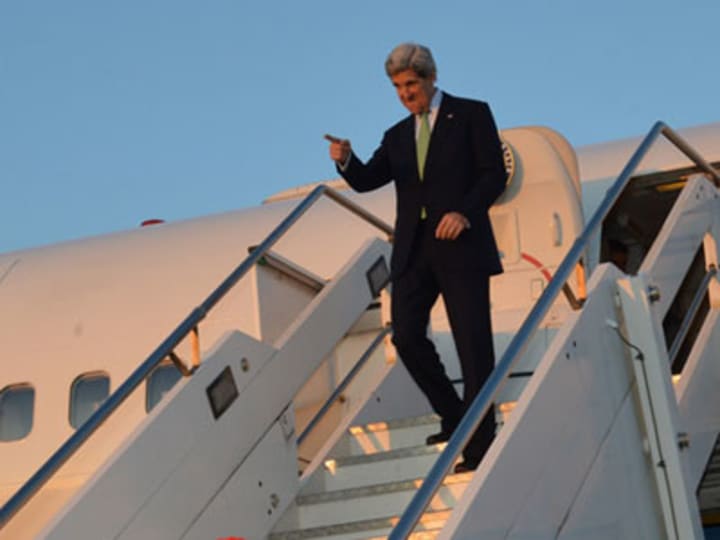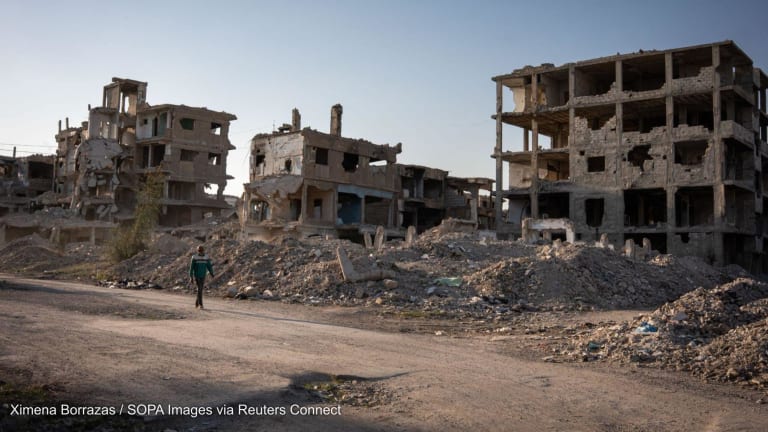
Hoping to accelerate political transition in Syria, the United States has floated an idea: channel more tangible assistance to the Syrian opposition.
U.S. Secretary of State John Kerry made the suggestion — a possible come-on the Obama administration is prepared to offer to the delegation of the Syrian opposition, which earlier planned to boycott the talks with Western leaders — during his stop in France, a day before today’s Friends of Syria conference in Rome.
“[Syrian President Bashar Assad] needs to know he cannot shoot his way out of this, so we need to convince him of that and I think the opposition needs more help in order to be able to do that,” Kerry told reporters in Paris. “And we are working together to have a united position.”
The United States, Kerry added, is finding ways to speed up the political transition in Syria, where a two-year uprising has killed about 70,000 people. He did not give details, though, but his plan involves a transition strategy and provision of basic services that many rebel-controlled areas are sorely lacking.
Kerry spoke amid reports the United States is considering giving direct aid to the opposition by training and arming the rebels, and sending humanitarian assistance to them. President Barack Obama earlier rejected plans to arm the rebels.
What does Kerry mean about “more help” would largely depend on the outcome of the Rome meeting.
This meeting between Kerry and the Syrian opposition earlier appeared to be unlikely. The opposition, however, made a last-minute decision after they received assurances from Western diplomats they would get real commitments.
“We will go and we will see if the promises are different this time,” Spokesperson Walid al-Bunni told a TV network.
Kerry’s meeting with the opposition is said to be the highlight of his nine-country tour.
Before he flew to Berlin from London, Kerry reportedly talked to Moaz Khatib, leader of the Syrian Opposition Council. No details have come out from that discussion, but while in London, Kerry said, “We are determined to change the calculation on the ground for President Assad.”
Kerry made repeated assurances that “we are determined that the Syrian opposition is not going to be dangling in the wind, wondering where the support is, if it is coming.”
Barring any policy shift that may happen in Rome, the U.S. official policy in Syria is to funnel aid through nongovernmental and multilateral organizations. What the United States does is to coordinate with the opposition where the aid should go, but the actual delivery is carried out by humanitarian organizations.
The United States, though, has already committed to provide more than $50 million in “nonlethal support” to the unarmed Syrian opposition.
A State Department fact sheet dated Feb. 8 reads: “Over 4,000 major pieces of equipment have been provided, mostly to Damascus, Aleppo, and other areas with significant opposition presence, including communications and computer equipment, as well as generators and medical supplies, to support unarmed Syrian opposition groups strengthen civil society, media, and democratic transition planning.”
Read more development aid news online, and subscribe to The Development Newswire to receive top international development headlines from the world’s leading donors, news sources and opinion leaders — emailed to you FREE every business day.




